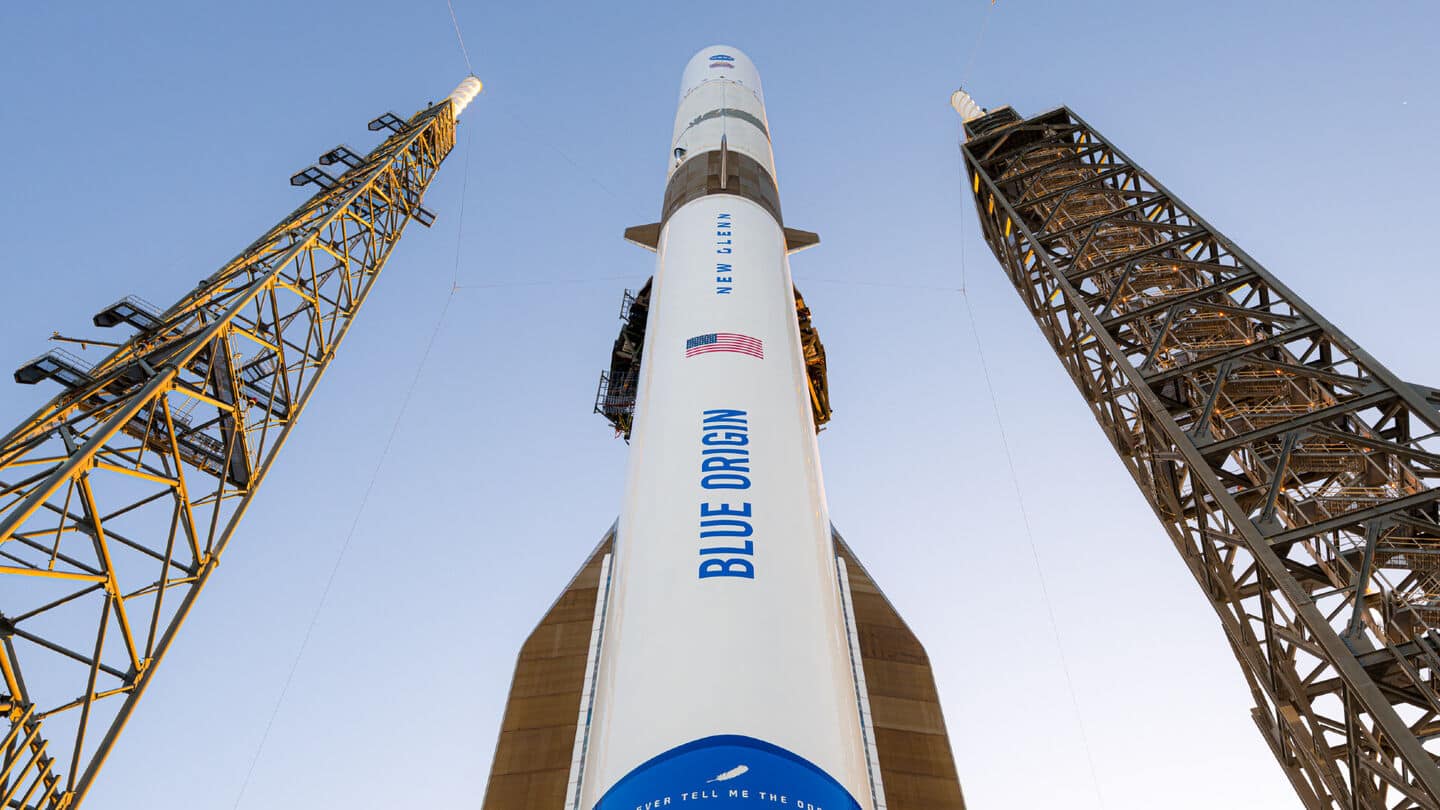
Why Blue Origin postponed launch of NASA's Mars mission again
What's the story
Blue Origin's New Glenn rocket launch has been delayed due to extreme solar storms. It was carrying NASA's twin ESCAPADE orbiters to Mars. The mission, which was supposed to take off from Cape Canaveral Space Force Station in Florida, is now on hold. This is the second delay for the New Glenn rocket after a failed attempt on November 9 due to bad weather conditions.
Mission details
A look at the delay
The New Glenn rocket was set to launch at 2:50pm EST (1:20am IST) today. However, due to the high solar activity and its potential impact on the ESCAPADE spacecraft, NASA has decided to postpone the launch until space weather conditions improve. Blue Origin is now looking for new dates for this mission.
Significance
ESCAPADE mission to study Martian atmosphere
The ESCAPADE (Escape and Plasma Acceleration and Dynamics Explorers) mission is NASA's first to Mars since the Perseverance rover was launched in 2020. The Rocket Lab-built orbiters will study how solar wind erodes the Martian atmosphere, among other things. The launch delay comes at a time when solar activity is on the rise, causing major interactions between Earth's atmosphere and incoming space weather.
Storm effects
CME led to the delay
The current solar cycle's most powerful sunspot group, AR4274, recently erupted with a strong G4 coronal mass ejection directly toward Earth. The event triggered widespread auroras on Wednesday night and led to the delay of New Glenn's launch. Blue Origin is now working out an exception for a new launch window with the Federal Aviation Administration, amid an indefinite ban on all commercial launches during daytime hours in the US.